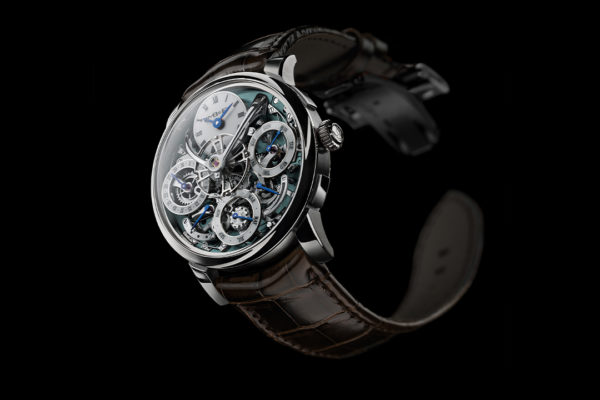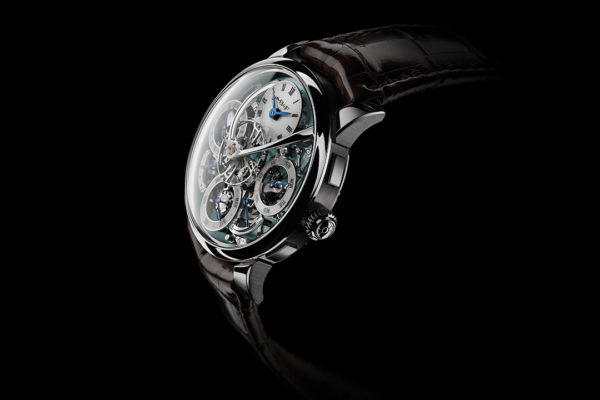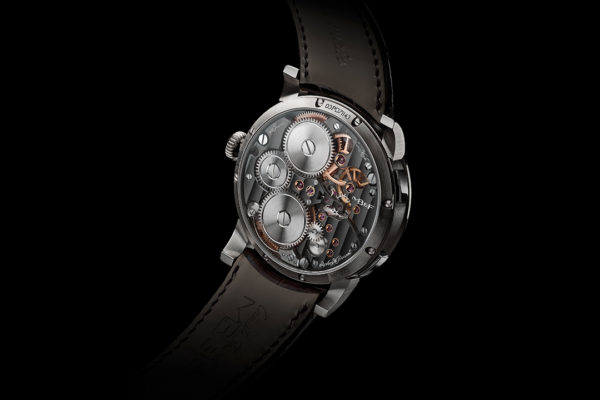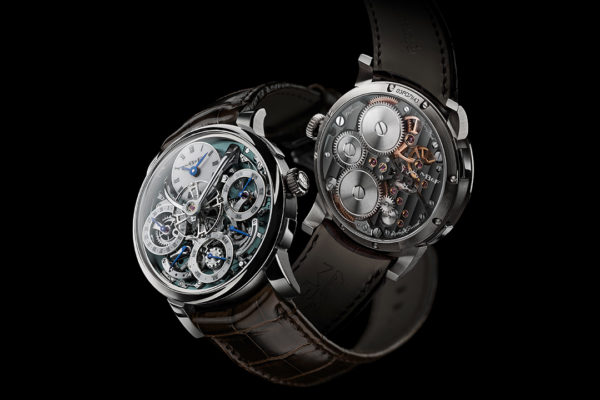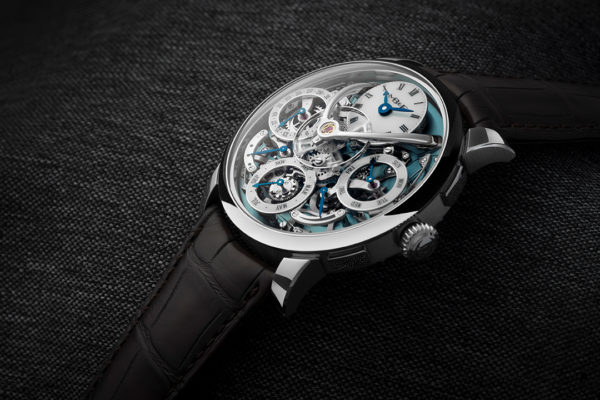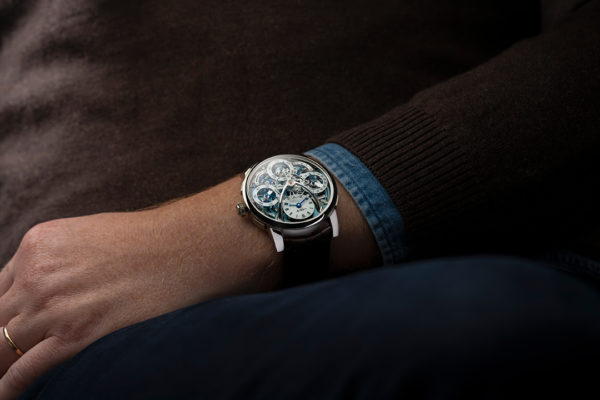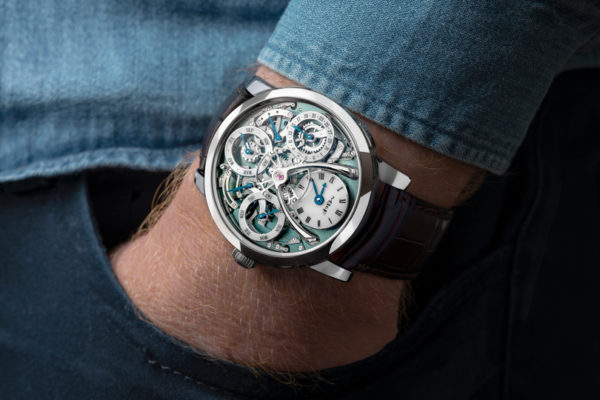Reinventing the perpetual calendar
First launched in 2015, the LM Perpetual has been crafted since in red gold, platinum, white gold, titanium, and yellow gold. Six years later, in 2021, a new limited edition of 25 pieces joins the series, crafted in palladium 950 – combined with an aquamarine sunray dial varying between shades of pale blue, green and grey. The new Palladium edition also inherits the ergonomic corrector pushers first seen on the LM Perpetual EVO editions.
Beginning with a blank sheet of paper, MB&F and independent Irish watchmaker Stephen McDonnell have completely reinvented that most traditional of horological complications: the perpetual calendar. The result is Legacy Machine Perpetual, featuring a visually stunning in-house movement – developed from the ground up to eliminate the drawbacks of conventional perpetual calendars.
The fact that the new complication looks sensational and can be fully appreciated dial-side is just one of the many benefits offered by the new movement, controlled by a mechanical processor.
LM Perpetual features a fully integrated 581-component calibre − no module, no base movement − with a revolutionary new system for calculating the number of days in each month. And it holistically reinterprets the aesthetics of the perpetual calendar by placing the full complication on dial-free display underneath a spectacular suspended balance.
The perpetual calendar is one of the great traditional complications, calculating the apparently random complexity of the varying numbers of days in each month − including the 29 days in February during leap years. But traditional perpetual calendars do have a few drawbacks: dates can skip; they are relatively easy to damage if adjusted while the date is changing; and the complications are usually compromises of modules powered by base movements.
The fully integrated, purpose-built movement of Legacy Machine Perpetual has been designed from scratch for trouble-free use: no more skipping dates or jamming gears, and the adjuster pushers automatically deactivate when the calendar changes, so no problems there either!
Traditional perpetual calendar mechanisms use a 31-day month as the default and basically “delete” superfluous dates for the months with fewer days – by fast-forwarding through the redundant dates during changeover. A traditional perpetual calendar changing from February 28 to March 1 scrolls quickly through the 29th, 30th and 31st to arrive at the 1st.
LM Perpetual turns the traditional perpetual calendar system on its head by using a “mechanical processor” instead of the conventional space-consuming grand levier (big lever) system architecture. The mechanical processor utilises a default 28-day month and adds extra days as required. This means that each month always has the exact number of days required; there is no fast-forwarding or skipping redundant days. And while the leap year can only be set on traditional perpetual calendars by scrolling through up to 47 months, LM Perpetual has a dedicated quickset pusher to adjust the year.
With its open dial revealing the full complication and suspended balance, it’s the harmonious mechanical beauty of LM Perpetual that really steals the show. And in an interesting technical twist, that eye-catching balance hovering on high is connected to the escapement on the back of the movement by what is likely to be the world’s longest balance staff.
Using an innovative system developed especially for Legacy Machine Perpetual, the subdials appear to “float” above the movement with no visible attachments. The skeletonised subdials rest on hidden studs, which is technically impossible with traditional perpetual calendar mechanisms because they would block the movement of the grand levier.
Taking a clockwise tour of the dial, at 12 o’clock we see the hours and minutes nestled between the elegant arches of the balance; day of the week at 3 o’clock, power reserve indicator at 4 o’clock, month at 6 o’clock, retrograde leap year indicator at 7 o’clock, and date at 9 o’clock.
The Legacy Machine Perpetual won the Best Calendar Watch Prize at the GPHG (Grand Prix d’Horlogerie de Genève) in 2016.




